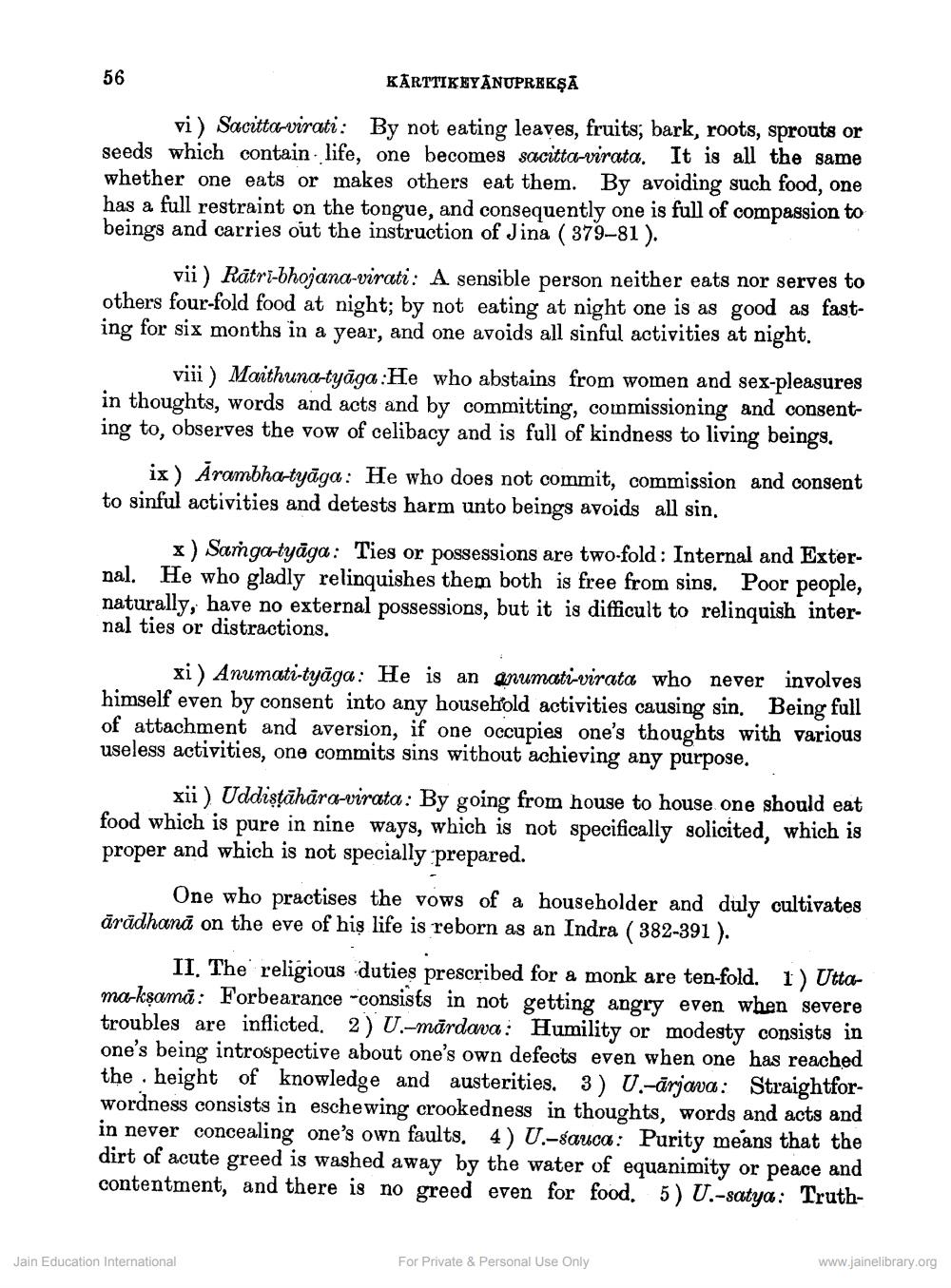________________
56
KĀRTTIKEYANUPREKŞA
vi) Sacitta-virati: By not eating leaves, fruits; bark, roots, sprouts or seeds which contain life, one becomes sacitta-virata. It is all the same whether one eats or makes others eat them. By avoiding such food, one has a full restraint on the tongue, and consequently one is full of compassion to beings and carries out the instruction of Jina ( 379–81).
vii) Rātri-bhojana-virati: A sensible person neither eats nor serves to others four-fold food at night; by not eating at night one is as good as fasting for six months in a year, and one avoids all sinful activities at night.
viii) Maithuna-tyāga:He who abstains from women and sex-pleasures in thoughts, words and acts and by committing, commissioning and consenting to, observes the vow of celibacy and is full of kindness to living beings.
ix) Arambha-tyāga: He who does not commit, commission and consent to sinful activities and detests harm unto beings avoids all sin.
x) Samga-tyāga: Ties or possessions are two-fold: Internal and External. He who gladly relinquishes them both is free from sing. Poor people, naturally, have no external possessions, but it is difficult to relinquish internal ties or distractions.
xi) Anumati-tyāga: He is an anumati-virata who never involves himself even by consent into any household activities causing sin. Being full of attachment and aversion, if one occupies one's thoughts with various useless activities, one commits sins without achieving any purpose.
xii) Uddistāhāra-virata: By going from house to house one should eat food which is pure in nine ways, which is not specifically solicited, which is proper and which is not specially prepared.
One who practises the vows of a householder and duly cultivates ārādhana on the eve of his life is reborn as an Indra ( 382-391 ).
II. The religious duties prescribed for a monk are ten-fold. 1) Uttama-ksama : Forbearance -consists in not getting angry even when severe troubles are inflicted. 2) U.-mārdava: Humility or modesty consists in one's being introspective about one's own defects even when one has reached the . height of knowledge and austerities. 3) U.-ārjava : Straightforwordness consists in eschewing crookedness in thoughts, words and acts and in never concealing one's own faults. 4) U.-eauca: Purity means that the dirt of acute greed is washed away by the water of equanimity or peace and contentment, and there is no greed even for food. 5) U.-satya: Truth
Jain Education International
www.jainelibrary.org
For Private & Personal Use Only




